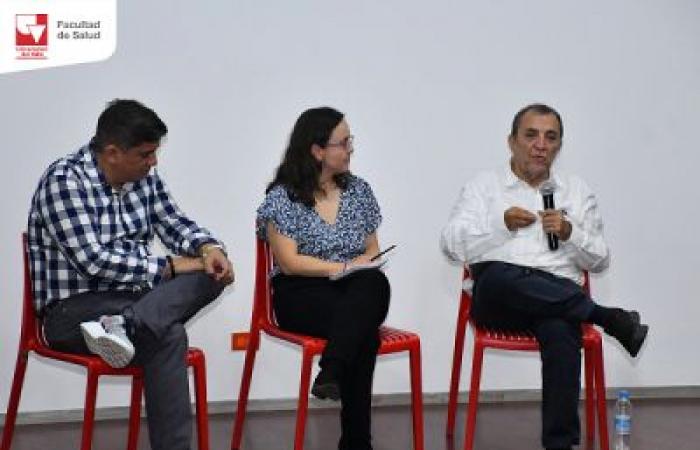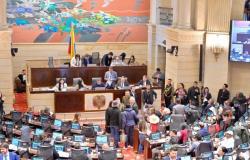The forum “Memory and interventions on violence in Colombia” provided a space for reflection and dialogue around the importance of promoting memory processes that contribute to the strengthening of the social fabric and the positive transformation of institutions and organizations in Colombia.
This event organized by the School of Public Health had the participation of the doctor in sociology, Alberto Valencia Gutiérrez, professor at the Faculty of Social and Economic Sciences, as well as the journalist, writer and doctor in sociology Nathalia Salamanca Sarmiento.
During his speech, Dr. Valencia offered a historical perspective on the concept of memory, highlighting that it is essential to preserve the past of a living being in its current state. “Memory is a component of our identity and a fundamental element of determination,” he said. He also highlighted that we do not remember from ourselves, but from others, thus introducing the concept of collective memory.
Likewise, throughout his participation, Dr. Alberto explained how memory has gained relevance, especially in post-conflict times, influencing the way in which countries address problems of violence. For Latin America, memory has been deeply marked by the crises derived from military dictatorships and the subsequent democratization processes, which has led to the emergence of truth commissions. In this regard, in Argentina the first was created in 1983, and in Colombia, this concern materialized around 2007 with the creation of the National Commission for Reparation and Reconciliation and the establishment of the Historical Memory Group.
For her part, Dr. Nathalia Salamanca shared her experience on the construction of the Testimonial Volume of the Truth Commission in Colombia, an effort that resulted in the publication of nine volumes.
Dr. Salamanca stressed the importance of listening as a fundamental resource in the exercise of memory reconstruction and explained some aspects that were considered key during the process, such as the collective responsibilities of the actors, the human and social impact of the conflict, its origins and causes, and the strengthening of the social fabric in the communities.
In turn, Salamanca highlighted that during the creation of the Testimonial Volume, the aim was for the stories to reconstruct the past from the present, creating a narrative that encouraged collective listening and an invitation to imagine a “future.”
With the holding of this forum, the Universidad del Valle, through the School of Public Health and with the support of ICETEX, reaffirms its commitment to promoting dialogue and knowledge that contributes to peace and social development in Colombia.






